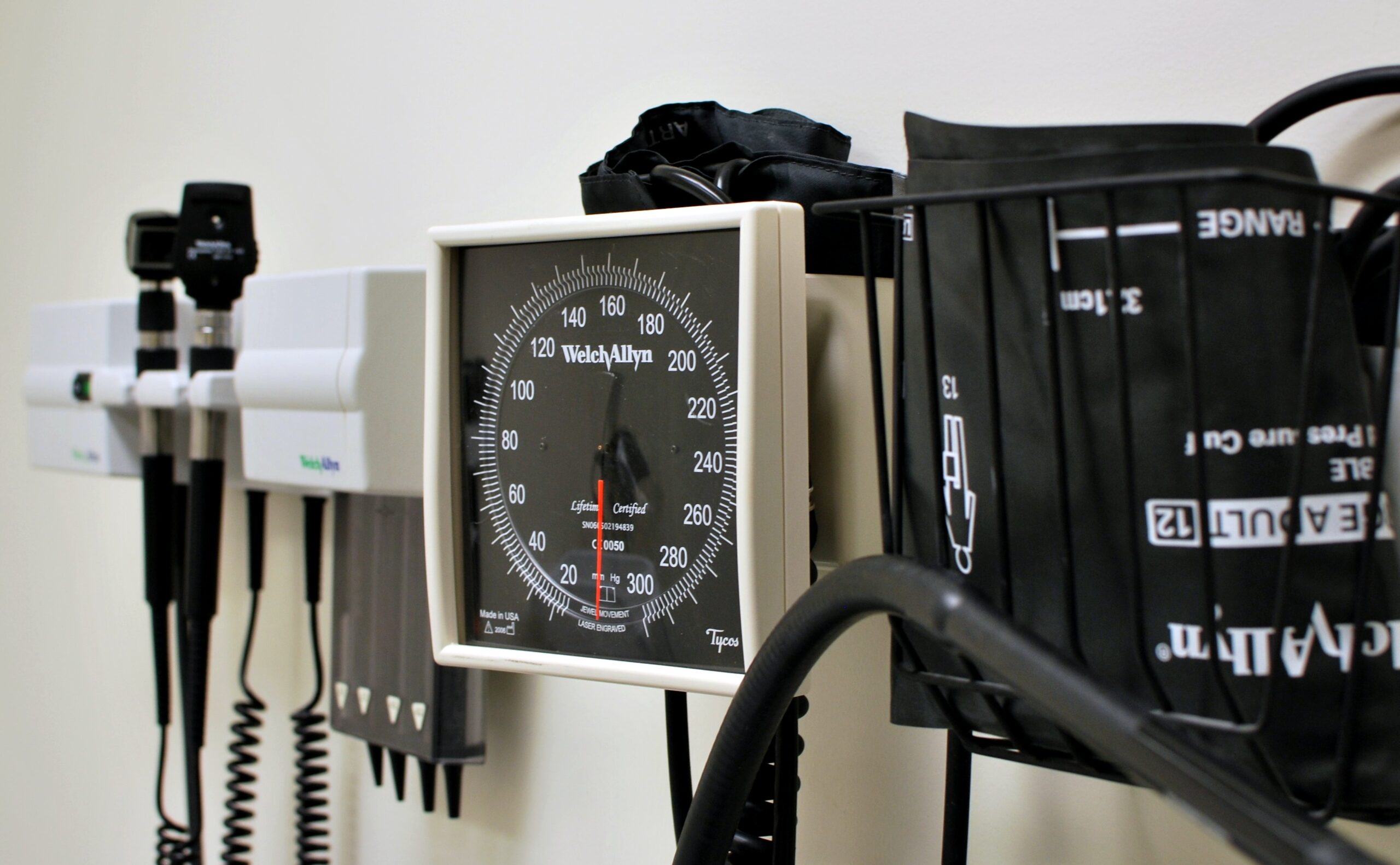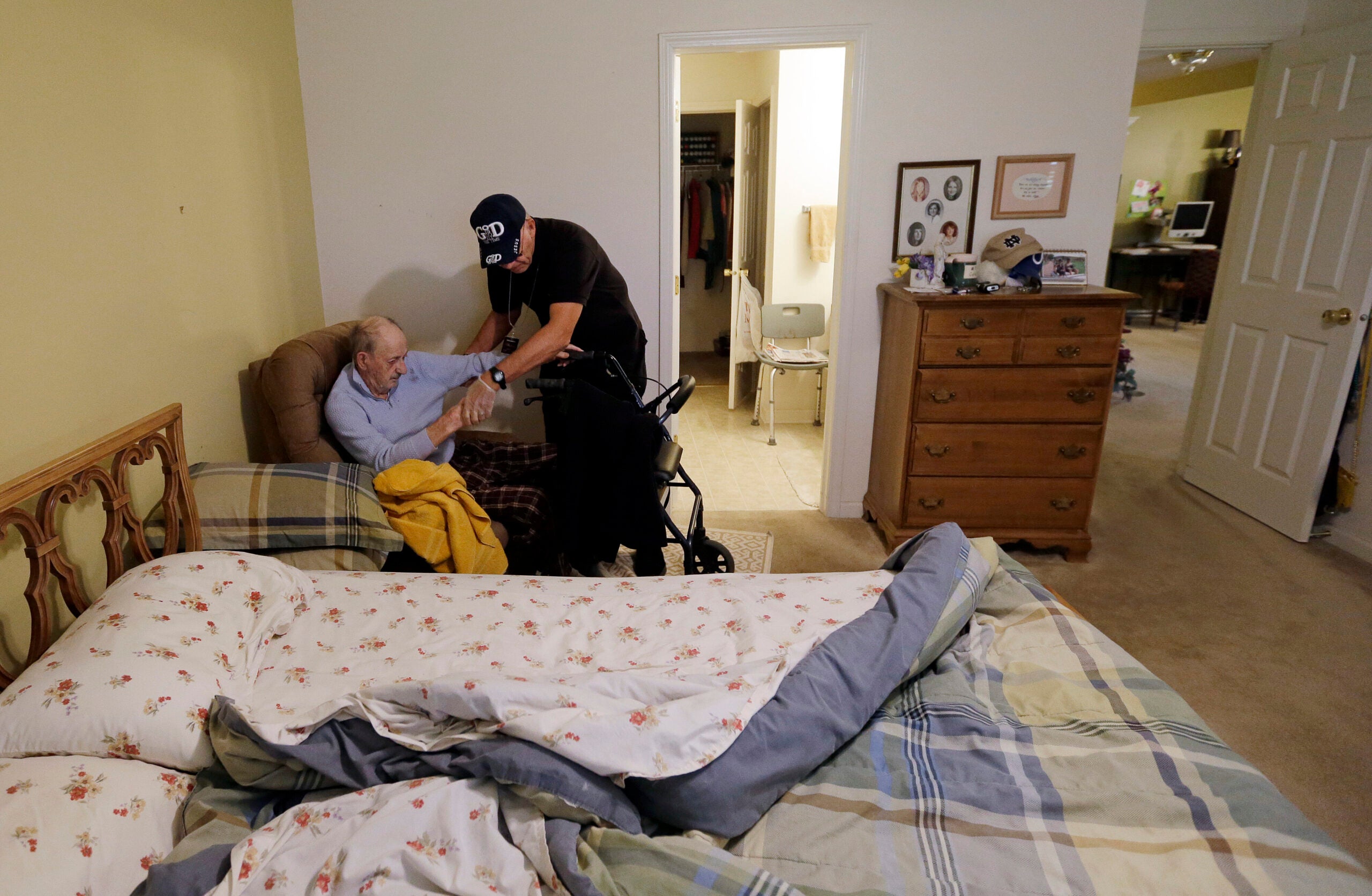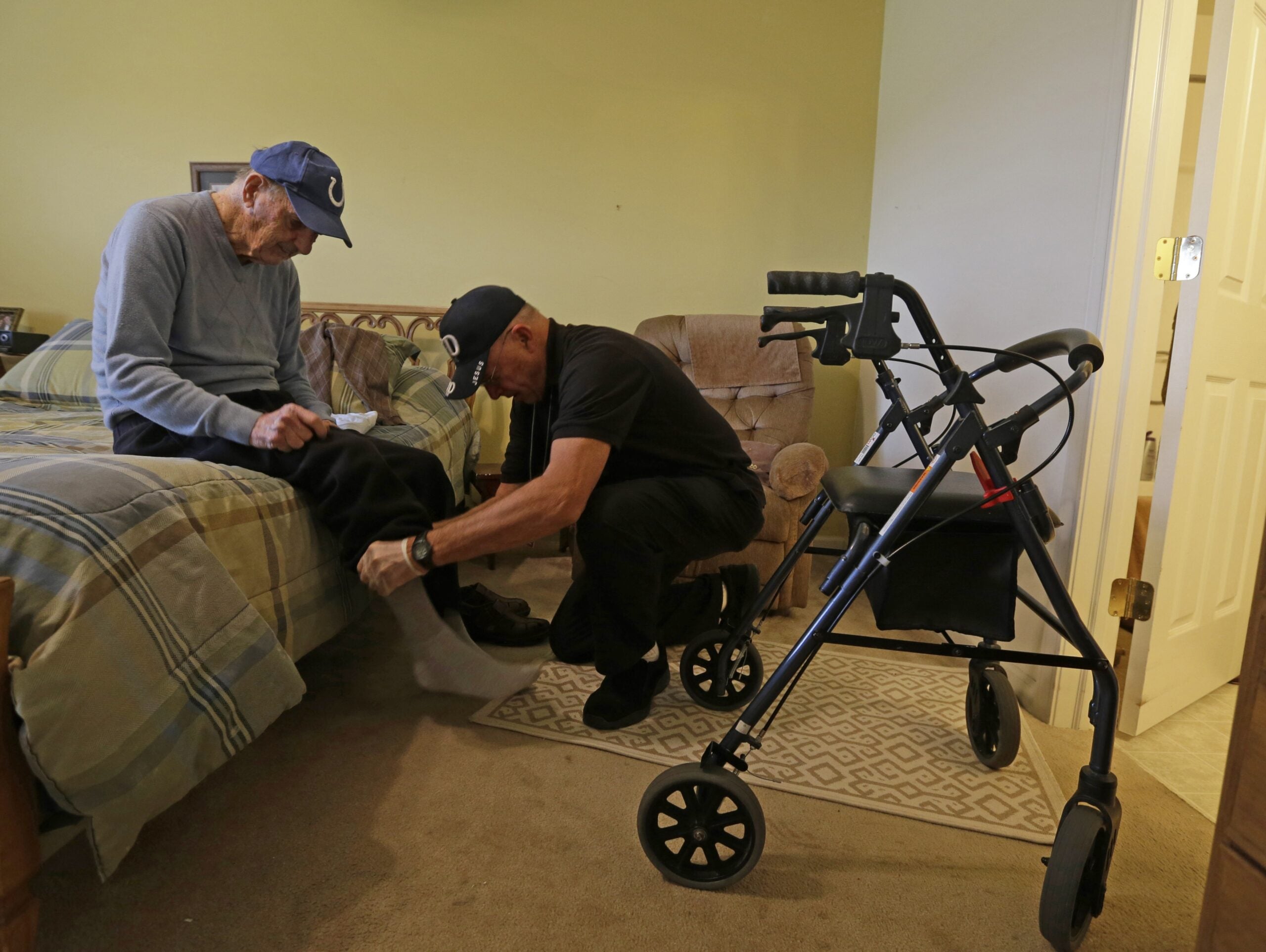AARP-Wisconsin is lobbying members of the Wisconsin Legislature and Congress to support legislation they say would help nearly 600,000 family caregivers in the state.
Caregivers help family, friends or neighbors stay in their homes, providing assistance with things like medical tasks, keeping track of medications, household chores or transportation.
Because family caregivers are often giving their time for free or paying from their own pocketbook to help people, efforts are underway on both the federal and state level to assist them with proposed tax benefits.
The federal RAISE Family Caregivers Act, which would offer an annual tax credit of $3,000, passed in the U.S. Senate, is awaiting House consideration. In Wisconsin, the CARE Act would offer an additional $1,000 in yearly credits and is expected to be introduced this fall.
The state legislation would also require hospitals to record the name of the caregiver when someone enters the hospital. It’s designed to improve communication between hospitals and caregivers so they know, for example, when the family member is discharged or instruct the caregiver on any medical procedures they need to perform when someone leaves the hospital. Thirty-nine other states have already approved similar laws.
AARP-Wisconsin communications director Jim Flaherty said its time for government to recognize the important work family caregivers provide to the healthcare system.
“They’re providing all this care while also working full-time, raising children, trying to manage their own household,” he said. “Let’s throw a lifeline to these unpaid family caregivers and make sure they have the support they need.”
Flaherty said studies have shown nearly 4 out of 5 family caregivers are incurring an average of $7,000 in annual out-of-pocket costs for the care they provide.
AARP-Wisconsin state advocacy director Helen Marks Dicks said 10,000 people are turning 65 each day in the United States and demand for family care is only going to grow.
“It starts out real simple,” she said. “You just drive mom to church, or you drive ’em to the grocery store, and the next thing you know it’s medication management, and the next thing you know it’s transfers. You have one good medical crisis and it’s all kinds of medical management. A lot of people don’t think of themselves as caregivers who really are.”
While the state and federal legislation would get at financial and health care concerns, it doesn’t address workplace concerns for caregivers who are working full-time and still providing care for loved ones.
La Crosse County’s Aging and Disability Resource Center fields calls from family caregivers daily, often making pleas for help because they are feeling overwhelmed.
Center supervisor Peggy Herbeck said they’re working with employers to help them understand the dilemma many people find themselves in.
“So that they can devote time to their family, but also come back refreshed and be able to perform their job,” she said.
Herbeck said the two biggest challenges to providing quality care to people who want to stay in the home are transportation, especially in rural areas, and a lack of paid caregivers who can come in the home and give family caregivers a break.
Episode Credits
- Hope Kirwan Host
- John Davis Producer
- Peggy Herbeck Guest
- Helen Marks Dicks Guest
- Jim Flaherty Guest
Wisconsin Public Radio, © Copyright 2024, Board of Regents of the University of Wisconsin System and Wisconsin Educational Communications Board.






